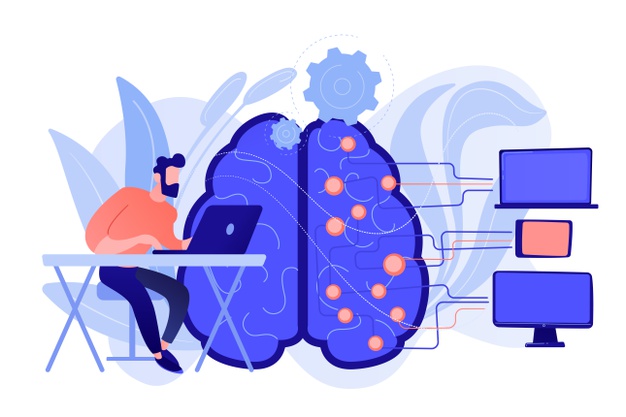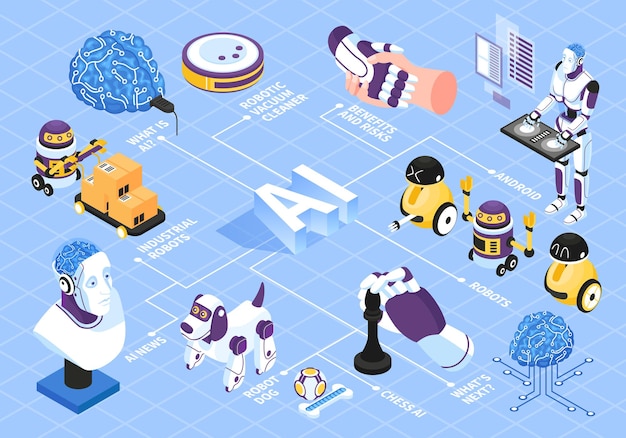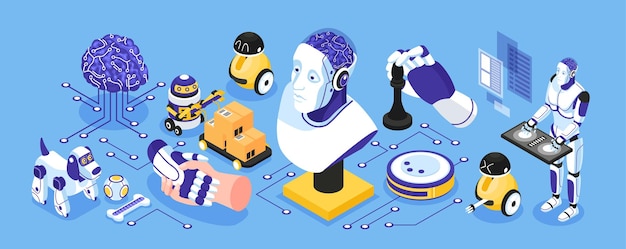10 August, 2023

Are You Looking For a
Web Devlopement | App Devlopement

Why every Small businesses Should Use machine learning ?
Small businesses and large enterprises all want to jump on the machine learning bandwagon. Big names like Google and Amazon use technology like this all the time. While smaller companies fear that machine learning is out of reach for them. But it doesn’t have to be.
Machine learning (ML) is an application of AI that uses statistical models and big data to make predictions about future trends.
For example, have you ever noticed how Google Photos can find images of just about anything (let’s say, a horse), without you having tagged the photo in advance? That’s because Google has fed its ML algorithms with thousands and thousands of photos of horses — the technology is able to identify the key attributes of the image that make it a horse, and then notice if future photos have those attributes too.

Uses of machine learning in business
Some industries are ripe with big data sources, perfectly suited for new machine learning models. Whether or not this is the case, all businesses can integrate ML in commonplace ways.
Security: Machine learning algorithms are excellent at recognising irregular account activity and detecting fraud because they monitor trends in data. These techniques can be used for network management and financial reporting.
Marketing: Machine learning technology aids in the creation of actionable ideas and the optimization of marketing decisions. In 2018, 43% of advertisers are using AI and machine learning to develop predictive modelling and achieve sales targets.
SEO: Companies must use SEO to keep up with Google's algorithms, which are primarily driven by machine learning. AI technology is used by tools including Google Analytics and Ahrefs to enhance trend analysis and provide consumers with new reviews.
Automation: One of the most appealing features of machine learning is the ability to automate routine processes and increase productivity. Many businesses now use AI-driven email and document automation. Chatbots are another excellent example of how low-cost machine learning systems can improve customer experience and have adaptive answers.
Customer suggestions: About everyone engages with ML on a regular basis, whether it's by customised recommendations on Netflix or Spotify. This kinds of forecasts can also be used to personalise marketing campaigns and recommend next transactions to consumers (e.g., "you may also like..."). ML enables you to assess which particular ads are most likely to be applicable to unique users by detecting trends in consumer behaviour.

Use of machine learning in finance and accounting
Finance and accounting are in charge of activities that are routine, predictable, and data-intensive. As a result, bookkeeping software applies itself well to machine learning solutions.
The bulk of our industry's software products have already implemented AI technology to develop and simplify everyday operations. Accounting becomes easier, more reliable, and more analytical as a result of machine learning.
Accenture, a consultancy company, explains how “machine learning and adaptive intelligence are rapidly becoming part of the finance team.” Others expect that accounting activities such as taxation, payrolls, and assessments will be completely automated by 2020.
Machines have already aided accounting companies by:
- Addressing financial queries using AI chatbots
- Managing expenses with account tracking and alerts
- Making predictions about business decisions
- Simplifying invoicing by matching items to amounts
- Automating bank reconciliations and categories
Improve customer experiences
You don’t have to increase headcount to serve your growing number of customers. With the implementation of an AI chatbot, your website can become a first stop for solving problems and answering customer questions quickly.
Using a service like Intercom‘s Answer Bot can give your support and service teams can deliver instant answers, in many cases, to customers with questions. Intercom claims that you can instantly resolve 29% of typical customer questions with Answer Bot, leaving your support and service team members to focus on the more complex or critical requests.
Platforms like Zendesk are also rolling out AI ticketing. AI ticketing can help clients resolve customer problems instantly. In some cases, but it can also direct a client’s users to the most appropriate channel for help. If the AI ticketing solution understands that a specific question is usually best resolved via a phone call with an agent or a chat online, it can direct the user where to go next, also leading to quicker resolution times.

Increase sales efficiencies
Selling takes a lot of hustle, and sometimes you may feel like your small brand is in a David-versus-Goliath battle with bigger competitors. Thankfully, there are several different AI solutions for sales teams to give you a competitive edge.
Website sales chat solutions can help proactively start conversations with visitors on your site. Companies can use like Drift to target visitors based on targeting criteria. The chatbot can begin a conversation with a visitor and hand off the interaction to a live agent or book a meeting for a sales representative. By using machine learning and natural language processing, Drift can take care of tedious tasks, too, so that sales reps don’t have to — things like opting people out of emails so that sales reps don’t have to do that manually.
CRM solution providers have also begun to offer machine learning/AI and natural language processing. What can these smart CRM options do for your sales team? Here are just a few examples.
- Give real-time guidance to sales reps by monitoring phone calls to analyze callers’ emotional states.
- Perform tasks like nurturing, qualifying, and following up via email with leads.
- Analyze extensive industry and social media data to support account-based marketing and sales.
Another set of AI tools for salespeople is focused on helping reps build rapport and connect with prospects. Some attempt to analyze a prospect’s personality based on LinkedIn profiles, the information in CRM, and past email exchanges. Others prompt sales reps to follow up with a contact and find good times for meetings.

Help improve decision-making and processes
A lot of the AI buzz you hear centers on advertising, marketing, sales, and even HR. However, small companies can use machine learning to improve decision making and processes in multiple areas.
- Analyze your company’s supply chain efficiency for better warehouse management, smarter shipping, inventory improvements, and more.
- Reduce risk by collecting data on processes and monitoring for human error so that organizations can create better or safer procedures
- Save time on booking meetings and resources with AI scheduling assistants
- Take care of certain accounting tasks
Streamline project management to ensure projects are on time and on budget .

Use of artificial intelligence in chatbots for text messaging .
The role of chatbots in making your brand more open and impactful is well-known. AI chatbots will assist your customers and, as a result, your company in a number of ways, including calling a customer service agent, reporting problems to help, creating a lead to contact later, ordering goods and services, and much more.
Business applications of chatbots for consumer-facing goods are growing rapidly. In fact, over 59% of millennials and 60% of Gen Xers in the United States have interacted with chatbots. And according to a Facebook survey, more than 50% of customers say they’re more likely to shop with a business that they can connect with via chat.
According to Gartner,
“By 2020, 85% of our engagement with businesses will be done without interacting with another human. Instead, we’ll be using self-service options and chatbots.”
Additionally, according to an Oracle survey,
“80% of businesses said they currently use or are planning to use chatbots by 2020.”
Customers expect to be able to find the information they’re looking for in a click of a button and in the blink of an eye.
When this isn’t possible, frustration brews, and this can lead to you losing a sale or even losing a potential customer forever.

Conclusion
Machine learning is a buzzword for today's technology, and it is growing very rapidly day by day. We are using machine learning in our daily life even without knowing it such as Google Maps, Google assistant, Alexa, etc. Below are some most trending real-world applications of Machine Learning . By following all these features a small business will definitely Grow with a rapid speed .
Follow us - https://www.instagram.com/teamdigimonk





.jpg)